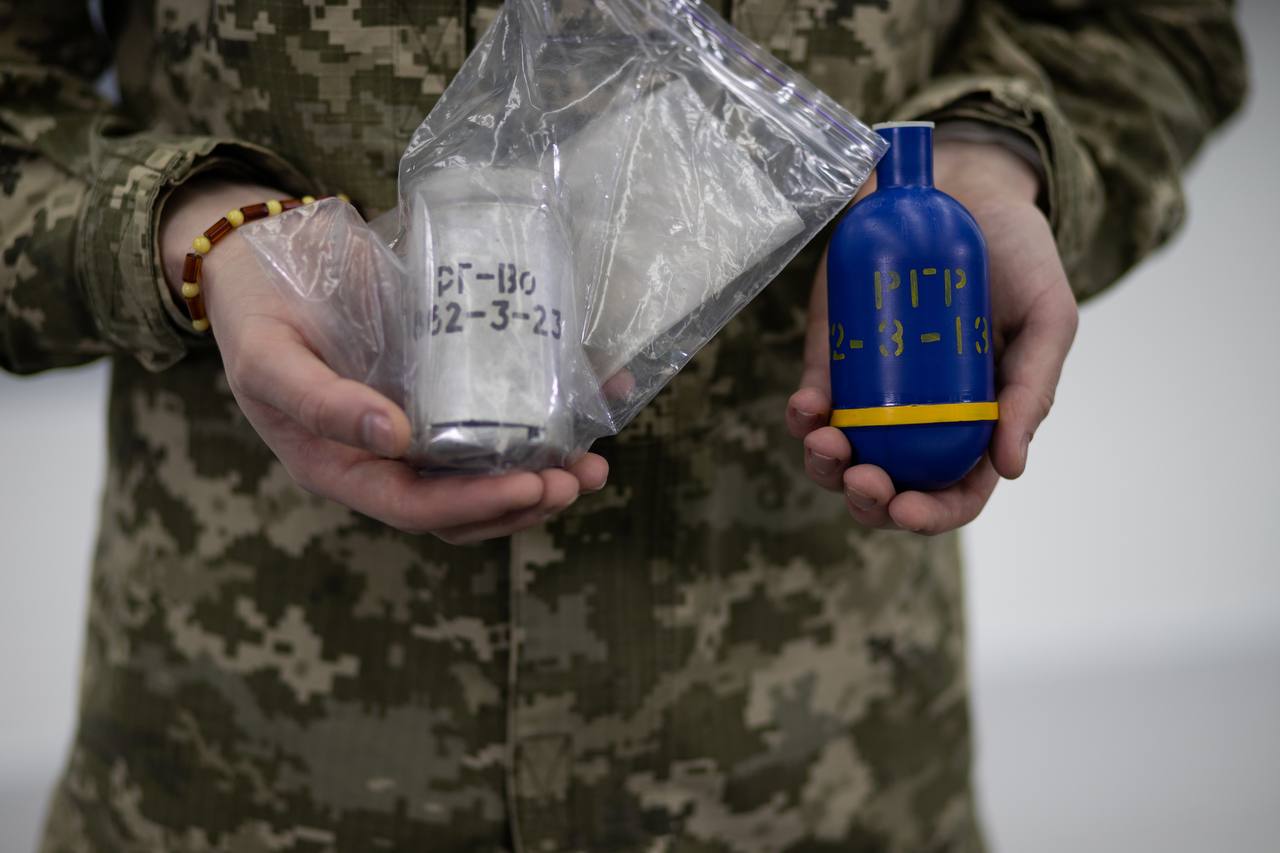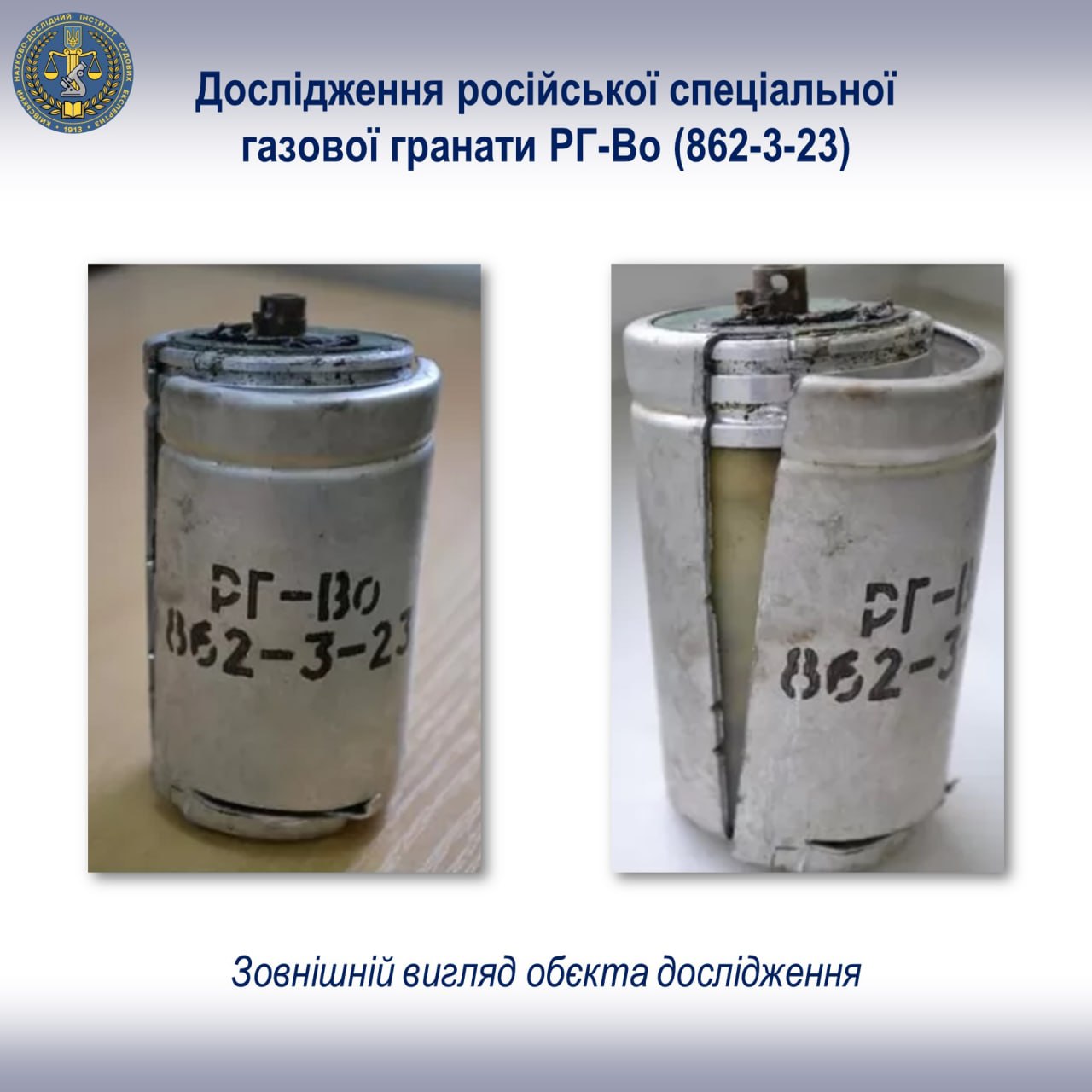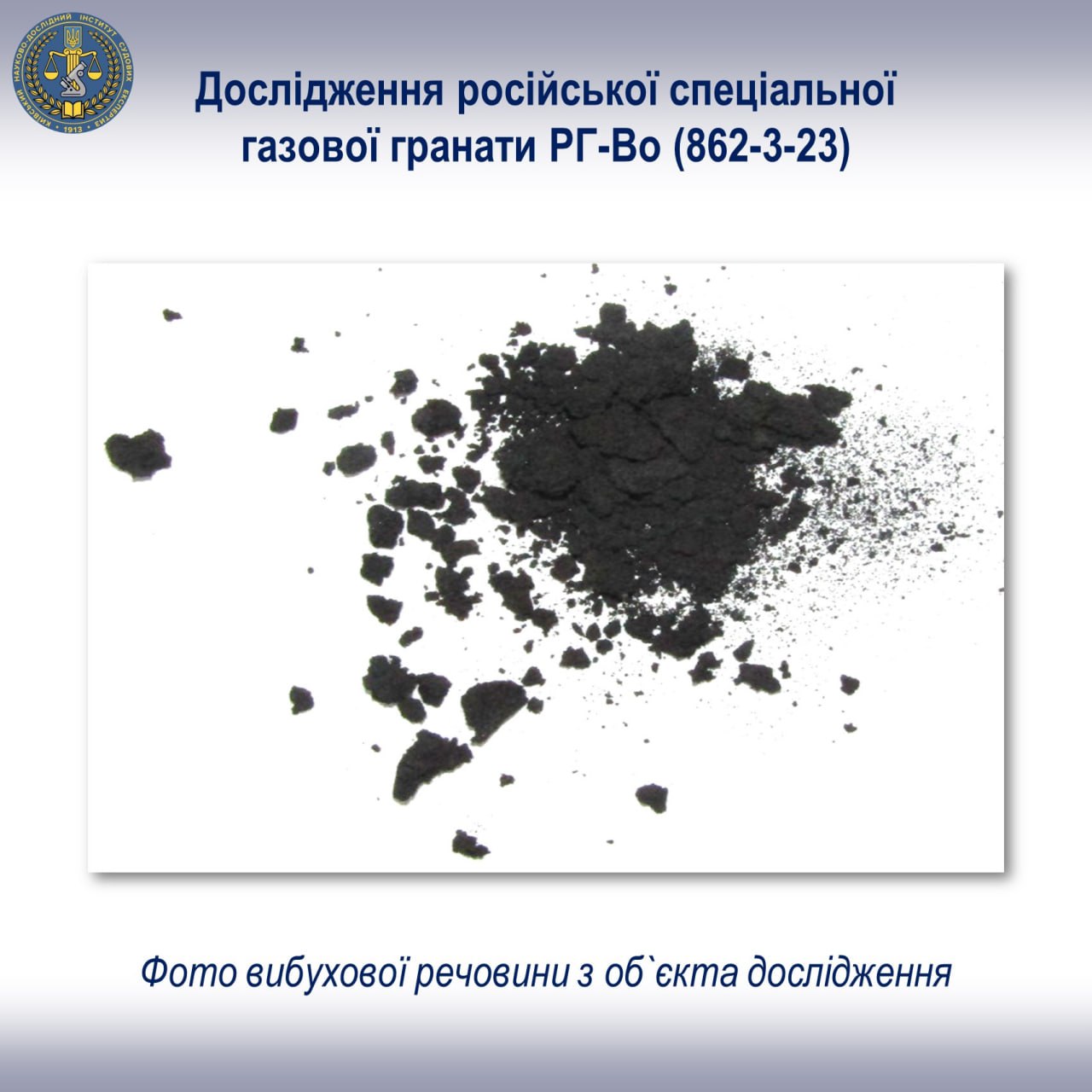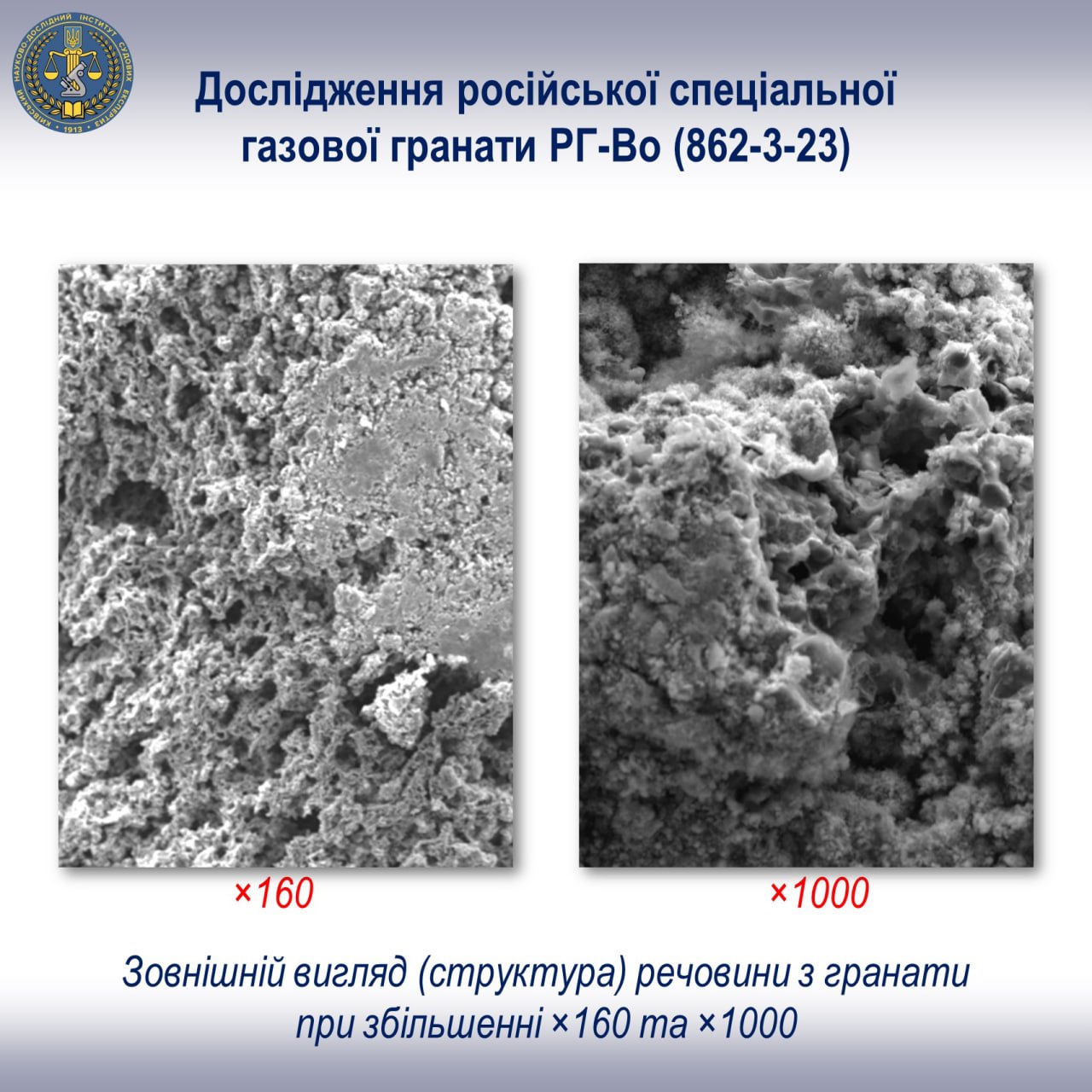Ukrainian Military Investigate Russian Poisoned Grenades
26 January, 2024 Russian RG-Vo hand grenade. Photo credits: General Staff of the Armed Forces of Ukraine The Russian invaders are using new RG-Vo special gas grenades against the Ukrainian defenders.
These grenades contain an irritating military substance, according to Captain Andrii Rudik, a representative of the Central Scientific Research Institute of Armament and Military Equipment of the Armed Forces of Ukraine. According to him, the Russian invaders first used new grenades against Ukrainian troops in December 2023. The name of the grenade is deciphered in Russian as "hand grenade-toxicant agent," which indicates its purpose.
 Russian RG-Vo and RGR hand grenades.
Russian RG-Vo and RGR hand grenades.
Photo credits: Military Media Center
Capt. Rudik added that in December 2023, a total of 81 cases of the use of Russian grenades with poisonous substances were recorded.
 Research on the Russian RG-Vo hand grenade. January 2024.
Research on the Russian RG-Vo hand grenade. January 2024.
Photo credits: KSRIFE
The research on the Russian RG-Vo (862-3-23) hand grenade was carried out by experts of the Kyiv Scientific Research Institute of Forensic Expertise (KSRIFE).
 Research on the Russian RG-Vo hand grenade. January 2024. Photo credits: KSRIFE
Research on the Russian RG-Vo hand grenade. January 2024. Photo credits: KSRIFE
The research revealed that the subject under study was manufactured industrially, confirming its classification as a special gas grenade of Russian production.
Oleskander Ruvin, the Director of KSRIFE, mentioned that the evaluation of the internal design and other features of the object was conducted through X-ray examination. He emphasized that this non-destructive method enables the inspection of the object for concealed threats.
 Research on the Russian RG-Vo hand grenade. January 2024.
Research on the Russian RG-Vo hand grenade. January 2024.
Photo credits: KSRIFE
To analyze the contents of the grenade, respective physico-chemical studies were carried out using modern equipment. "According to the results of expert analysis, it was established that in the substance from the grenade there were traces of an irritating agent, namely chloroacetophenone (CN), which is an irritating chemical agent," Ruvin explained. Based on its use during the Vietnam War, chloroacetophenone (CN) was prohibited for use as a chemical warfare substance in accordance with the Geneva Protocol approved by the UN General Assembly in 1969.
Chloroacetophenone acts directly on mucous membranes, causing intense irritation of the eyes and respiratory tract with a sensation of burning and pain in the eyes, nose, throat, and lungs.
Irritation of the respiratory tract by CN leads to symptoms such as sneezing, coughing, nasal congestion, and a sense of suffocation.